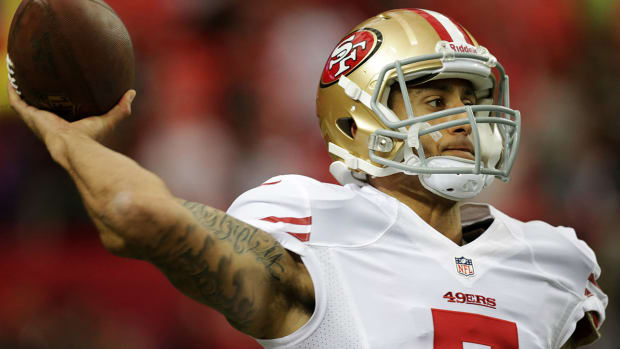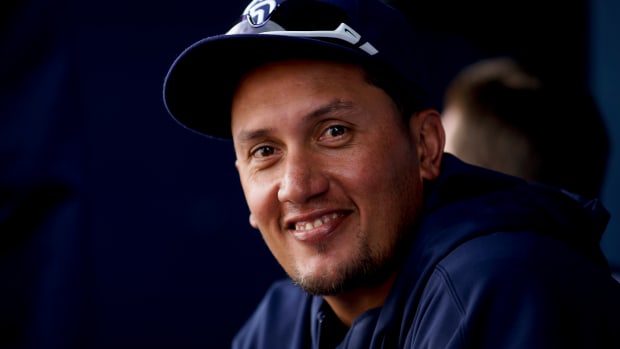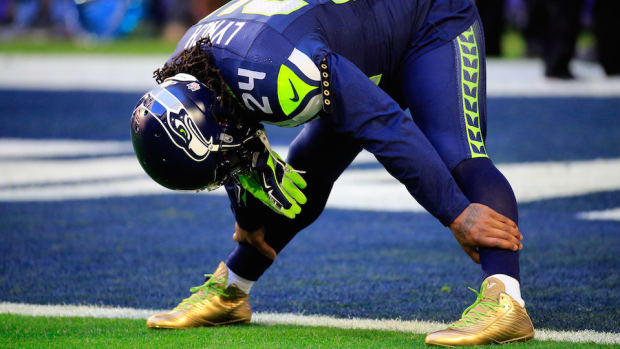
John Calipari: NCAA crumbling like the Soviet Union
John Calipari urges the NCAA to reform itself in his new book. (Stephen Dunn/Hartford Courant/MCT via Getty Images)
Fresh off a national championship game loss to UConn, Kentucky head basketball coach John Calipari is set to release his book Players First: Coaching From the Inside Out on April 15. In the book, Calipari argues that the NCAA will collapse unless it reforms, according to the Wall Street Journal.
Calipari even compares the NCAA to the Soviet Union, which collapsed in 1991 under its own weight. The Wall Street Journal quoted an excerpt from the book:
"The situation reminds me a little of the Soviet Union in its last years," Calipari writes. "It was still powerful. It could still hurt you. But you could see it crumbling, and it was just a matter of time before it either changed or ceased to exist."
In the book, according to the report, Calipari makes a number of recommendations for change to the NCAA, including increasing benefits for players, reforming transfer rules and ridding college basketball of the one-and-done phenomenon.
THAMEL: Outcoached again, John Calipari showed why he'll never succeed in the NBA
As the report notes, Calipari and the NCAA have butted heads in the past, notably due to violations from Calipari's teams. Calipari writes in the book that the NCAA has not listened to a number of his suggestions.
Calipari has a history of run-ins with the NCAA. His teams at the University of Massachusetts and the University of Memphis, where he coached before taking the Kentucky job in 2009, had Final Four trips vacated for eligibility violations. In 2011, when Kentucky celebrated Calipari's 500th career win, the NCAA objected on the grounds that some of his previous wins had been vacated. In the book, Calipari acknowledges that he has been cast as a "black hat." He says the NCAA has rejected his suggestions on several fronts, such as changing eligibility rules to prevent "one-and-done" players in college basketball.
"I think we could have gotten somewhere with me as the point man, but the NCAA was not interested in my help," he writes. "The message I got, between the lines, was, 'No, not you. Not Calipari. We don't want him involved.'"
Calipari's criticism of the NCAA comes as the organization's traditional model of governing college athletics is fraught with uncertainty. Recently, the regional director of the National Labor Relations Board ruled that Northwestern scholarship football players are employees of the school and thus have the option to unionize. The NCAA also faces an antitrust lawsuit dealing with the current inability of players to profit from their likeness and image.
This past Sunday, NCAA president Mark Emmert suggested he was open to reforming aspects of the NCAA, but he called unionization a "grossly inappropriate" initiative.
THAMEL: The NCAA's real problem? Lack of leadership, starting with Mark Emmert





